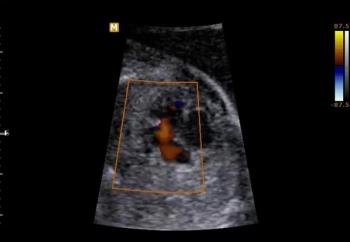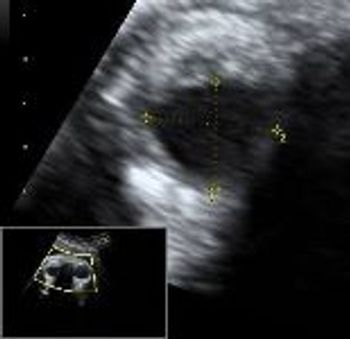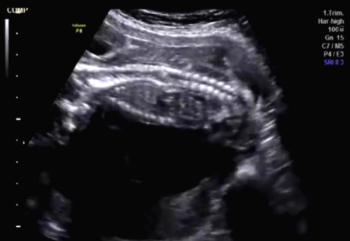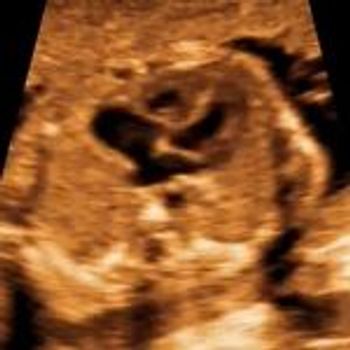
Another insurer has taken steps to restrict morcellator use. Two studies examine the effect of low molecular weight heparin and its effects on recurrent pregnancy loss.

Another insurer has taken steps to restrict morcellator use. Two studies examine the effect of low molecular weight heparin and its effects on recurrent pregnancy loss.

Contemporary OB/GYN's Resident blogger reflects on the way that time changes on the job from the rush of morning rounds to the agonizingly slow minutes while watching fetal heart rate tracings in prolonged decelerations.

The high cost of routine mammography in younger women

A look at the evidence shows that a program using ob/gyn hospitalists makes sense for many facilities and may improve outcomes.

The professional responsibility model of obstetric ethics provides a powerful antidote to maternal rights-based reductionism.

Training on the devices is available, even beyond residency.

"The infant’s father testified that at the birth, he arrived 2 ½ hours prior to delivery, and for the duration of that time he was able to see his son’s head."

Identification and surveillance will help carriers avoid cancer.

Hands-on ratings of a patient-controlled inhaled analgesia system and a bag for contained tissue extraction.

Research looks at ACOG's 39-week initiative, whether a diagnosis of GBS in 1 pregnancy increases likelihood in future pregnancies, and more data on open versus in-bag morcellation.

QUIZ: What is your diagnosis based on these fetal echo images?

A 14-year-old with altered mental status has a seizure in the ER. Find out why a gynecology consult was called for.

The USPSTF updated recommendations on mammography have sparked discussion on screening in younger women. Plus, does exposure to gestational diabetes increase risk of autism? What are the implications of genome editing?

The Centers for Disease Control and Prevention (CDC) discusses the importance of HPV screening, vaccination, and the role of the clinician in helping prevent HPV and related cancers. The video presents three viewpoints: An OB-GYN who treats cervical cancer, a mother / Pediatrician who had her daughters vaccinated for HPV, and a survivor of cervical cancer.

NASPAG 29th conference featured research on the increased risk of complications in teen pregnancy, the desire on over-the-counter contraception, and a tool to help identify patients with menorrhagia.

This blog discusses how OB/GYNs need not only to understand the science behind genetic screening but also to counsel patients properly about the results.

Pregnancy is possible for women with inflammatory bowel disease, but collaboration is needed between gastroenterologists and obstetricians.

New research looks at the possibility that women who were themselves born prematurely are at greater risk of delivering their children prematurely. Also research on how much women worry about the genetic risks of their breast cancer and a new algorithm for stratifying breast cancer prevention.

Spicing things up in the bedroom can have consequences, and an exhausted on-call Ob/Gyn can attest to that.

QUIZ: These images of the fetal eyes reveal a clue about the mother's health.

Of the top 10 surgical procedures that are decreasing at the greatest rate, 4 of them are related to obstetrics and gynecology.

Cell-free fetal DNA screening tests for trisomy 21 are more accurate than standard screening with nuchal translucency even in low-risk women.

The term "dense breasts" often leaves patients confused about what it really means to have dense breasts.

These images from a routine ultrasound examination of a 20-week fetus reveal a rare abnormality of the fetal spine.

Now that stand-alone HPV tests have been approved, is it worth changing cervical cancer screening recommendations? Juan Felix, MD, weighs in.

DNA from a genetically dissimilar deceased twin may be counted as part of total fetal DNA, leaving to incorrect test results for the surviving fetus.

Unsuccessful fertility treatment takes a toll on both partners, and knowing their mental health history can help predict depression risk.

QUIZ: These images are of the fetal heart reveal an abnormality. Can you identify it?

A recent report sheds light on how much false-positives and overdiagnosis of breast cancer cost. Additionally, new research examines the impact of the number of live births on future heart health in the mother and provides further evidence of the efficacy of cfDNA testing.